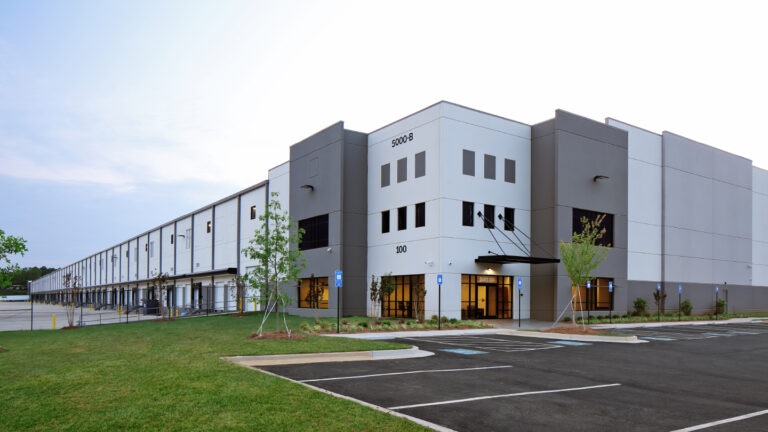
Over the past three to five years, there has been a sizeable uptick in Private Equity (PE) investment in the healthcare sector, from telehealth and outpatient clinics to surgery centers and hospitals. Case in point: data from Pitchbook indicates that in 2022 an estimated 863 healthcare-related service deals were closed by PE firms. Other reports found that PE acquisitions of healthcare-related businesses have risen from an estimated annual deal value of $41.5 billion in 2010 to more than $200 billion in 2021.
One subsector that is particularly interesting to look at, and that we anticipate will continue to entice PE firms, is senior living. Overall, many more senior living groups are being funded and purchased by PE, who grow their portfolios in the space over a number of years.
Katie Wagner, who heads up Liberty Mutual’s healthcare liability underwriting, and I are taking a look at the senior living space in this blog – overviewing what we’re seeing and why as well as the risk and insurance implications PE firms should keep top of mind if they’re interested in the space.
Approach and attitudes about aging impact investment strategy
Unsurprisingly, there are several reasons there has been growth in the senior living space. For example, longer life expectancies and the influx of aging Baby Boomers who increasingly need additional care. What’s new and notable, however, is the type of facility PE is investing in. Firms are not buying facilities in the skilled or highly regulated government market. Instead, they’re seeing value in assisted, independent and dementia care facilities where newer or renovated builds abound, and care is administered in a way that aligns with patients’ desire to age at home or in place and not go into a true skilled nursing home model. In fact, many skilled nursing facilities have been acquired, closed or converted into assisted, independent and memory-care specific units.
This approach is indicative of a larger mentality shift about aging. Many Baby Boomers who may have cared for their own elderly parents and relatives don’t want to burden their children with similar caregiving responsibilities. Often, they are more proactive and more transparent in the planning of their aging and end of life care desires – and the physical spaces where they can age and level and involvement of care are evolving as a result. These are trends PE firms are taking notice of and, given the size of the upcoming aging population, are anticipating continued growth and opportunity in the space.
Investing in senior living isn’t just about a return on investment
One of the biggest concerns – and circulated criticisms – of PE activity in the senior living space is that it involves the care of humans, not just a product, app or piece of technology. Our teams acknowledge this and seek to work with PE firms looking to be involved and conscientious investors. We evaluate a firm’s experience in the healthcare space specifically, examining the knowledge and expertise that exists at the c-suite level, intended involvement of leadership in operations and what the firm’s ultimate plan is for investing in the space.
One-size doesn’t fit all when it comes to insurance
It would be erroneous to think that the insurance needs for one senior living facility were the same for all. However, that is exactly the mindset we see taking hold amongst some in the industry. It’s not uncommon for a PE firm to try to build a master insurance program for 10-15 senior living groups that are unrelated from an ownership standpoint. In these scenarios, firms share insurance limits across the different businesses in the portfolio.
Our teams think this approach for this sector is quite risky as a firm is losing significant amounts of money in limits and there can be negative long-term implications for loss history, insurance rates and renewals. What’s more, when a firm goes to exit, this approach can be a negative from an investment standpoint. We would rather provide a limit and coverage for each individual facility and standardize what the rate pricing and terms are across the portfolio.
Five considerations for successful senior living buys
PE firms pondering a buy in the senior living space should:
1. Involve the insurance team early.
Diligence is involved and can move quickly yet it’s not uncommon for PE firms to think about insurance needs for a potential investment late in the process. This approach and a general lack of understanding about insurance makes an investment vulnerable to inadequate coverage and can give a carrier pause on whether to proceed with writing coverage.
2. Balance healthcare and PE expertise when working with brokers and carriers.
There are nuances to dealmaking in the senior living space, making it important for firms to work with brokers and carriers who can balance the need for both PE expertise and healthcare expertise. A PE-focused and a healthcare-focused broker or carrier each have their own respective experiences and perspectives that, when they work in harmony, can make a big difference in the comprehensiveness of the insurance program.
3. Seek out plaintiffs’ bar and government expertise.
The regulatory and legal landscape in healthcare is complex. Medical malpractice in the senior living space is a very specialized plaintiffs’ bar which can include savvy plaintiffs. It’s imperative PE firms know this and ensure they have expertise in this space to help avoid becoming entangled in messy and costly legal situations. Similarly, firms should have experts well-versed in government regulation for the senior living space, as regulations and requirements are ever-changing.
4. Consider sector-specific cyber needs.
There are specific cyber risk implications for the senior living sector, largely relating to the vast amount of private information (whether personal, medical or financial) that is stored. It’s imperative that PE firms protect this data by working closely with the risk management and insurance team to have the proper coverage in place should a breach occur in addition to developing an incident response plan and continually monitoring cyber needs.
5. Anticipate labor shortage challenges.
Like in many other industries, there is a well-documented labor shortage in healthcare and – no surprise – senior living facilities are a particularly risky proposition to not have properly staffed. PE firms should have this on their radar and work with their risk management and HR teams to retain and educate staff to help reduce risk.
Investing in the senior living space can be a savvy move for PE firms looking to grow a portfolio in the healthcare sector. However, the risk management and insurance needs for such buys are unique. Intentional investing and an eye for the specifics are needed to make a strategy a success.
To learn more about how Liberty can help private equity firms manage risk and grow, visit our private equity page.
Get in touch
Our commercial and specialty insurance products and services are distributed through brokers and agents. If you are interested in our solutions for your business, please contact your agent or broker. If you are an agent or broker, please reach out to our team for more information.

Amy Gross
Boston, MA

Katie Wagner
Avon, CT
Featured insights
This website is general in nature, and is provided as a courtesy to you. Information is accurate to the best of Liberty Mutual’s knowledge, but companies and individuals should not rely on it to prevent and mitigate all risks as an explanation of coverage or benefits under an insurance policy. Consult your professional advisor regarding your particular facts and circumstance. By citing external authorities or linking to other websites, Liberty Mutual is not endorsing them.



